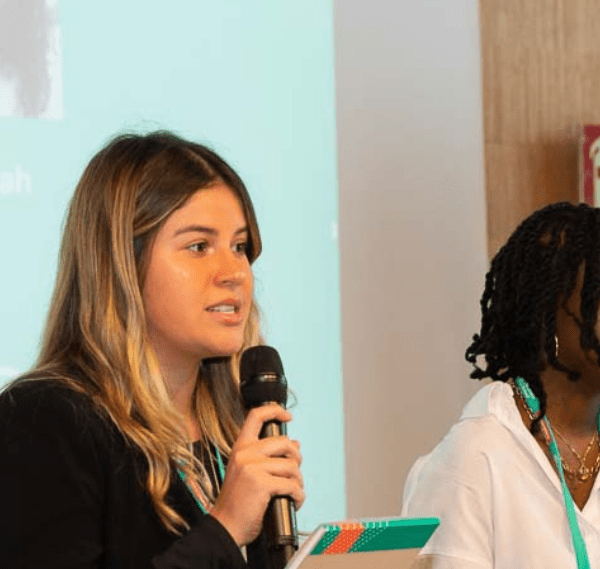How the Event Industry Is Tackling the Impact of COVID-19
COVID-19 has had an impact on almost all aspects of life. In March of this year, the virus had spread to over 100 countries, forcing the World Health Organization to declare a global pandemic. Unprecedented lockdowns, strict travel bans and “social distancing” measures followed shortly. According to Johns Hopkins University, this year to date there have been almost 60 million cases and over one million deaths worldwide due to the novel coronavirus.
Many industries that were thriving before the pandemic have faced significant revenue losses and contracted in terms of their growth. Several companies across multiple industries have already declared bankruptcy or were forced to lay off significant portions of their staff.
Naturally, one of the worst affected by the pandemic was the events industry. 2020 saw the cancellation of many prominent festivals, sporting events, exhibitions and concerts in an effort to slow the spread of the virus. As early as March, St. Patrick’s Day festivities were cancelled all over the world. The restrictions imposed due to the pandemic have also impacted private events, such as weddings.
Major International Events Postponed Because of COVID-19
Many highly anticipated major international events due to take place in 2020 were postponed until next year.
The Olympics, due to take place in Tokyo, were postponed for the first time since their modern inception. Instead of cancelling the event, the organizers made the decision to reschedule the games until next year, when they will hopefully go ahead on July 23, 2021. Such a postponement of the summer Olympics is unprecedented in its history. However, they were cancelled three times during the 20th Century, most notably during the Second World War.
Euro 2020 was also postponed due to COVID-19. The European football tournament has been rescheduled and will now take place in June and July 2021.
However, other major football tournaments have gone ahead behind closed doors, in empty stadiums.
One of the more bizarre results of this was the use of “fake crowds” at some football games. For example, Sky Sports partnered with EA SPORTS FIFA to design a range of crowd-like sounds, such as chanting and cheering, while broadcasting the English Premier League. These realistic sounds are specific to particular football teams, in order to give viewers a sense of atmosphere as they watched the game on TV.
Businesses Facilitating Virtual Events
Despite the ban on large gatherings, connection and social interaction are still an integral part of human life. Businesses have found novel and innovative ways to bring people together to share experiences, while still adhering to social distancing rules and guidelines. COVID-19 restrictions have forced us to rely on technology to connect with others and have been a catalyst for the rapid growth of companies that facilitate this.
While the pandemic has hit the revenues of traditional event planning companies extremely hard, there’s been a steady rise in the number of “virtual event” startups who have entered the space. One such company is Hopin. Hopin describes itself as a “virtual venue” and offers users access to a wide range of features, including virtual rooms, which attendees can move in and out of. This recreates the format of a traditional live expo or conference.
Hopin has impressed both customers and investors. At the beginning of November the company secured $125 million of series B funding, increasing its current valuation to over $2 billion.
Another platform that has been utilized by event organizers is Zoom, which went from being practically unknown to becoming a household name within a few short months. Initially, the online meeting app was used primarily for small to medium sized meetings and conferences. However, in October Zoom announced the launch of their new virtual event marketplace.
OnZoom expands on the virtual event business model, offering a virtual event space, with meeting rooms, stages etc., as well as a marketplace for the events themselves. Zoom’s virtual event marketplace is similar to the type of service Eventbrite has been offering for the last few years.
Zoom is in a unique position to capitalize on its success as the go-to virtual meeting software for 2020. The beta version of OnZoom is being piloted in the US and there are already a host of diverse and exciting virtual events listed on the platform, including virtual history tours, business conferences and live group meditation sessions.
How Event Companies Have Used Virtual Event Software
Companies such as Hopin and Zoom facilitate virtual events, however, what about companies using these technologies? How have event planning businesses pivoted since the beginning of the pandemic? There are many examples of companies that have embraced technology to bring unique virtual experiences to their customers.
Virtual Concerts
Sofar Sounds has been around since 2009, turning cafes, living rooms and other spaces into live music venues, and creating intimate concerts for small audiences. When the pandemic hit, Sofar Sounds was forced to pivot their business model and move its unique concert experience totally online.
Since March, Sofar has allowed users to tune into “listening rooms” where they can join independent musicians from all over the world for intimate livestreams. This is an example of a business that has really risen to the challenge created by the pandemic.
Virtual Runs
Due to the pandemic, several marathons and other sporting and fitness events were forced to cancel. The Great American 5000 came up with an innovative work-around, creating a virtual run all the way from San Francisco to New York. Teams of up to 12 or 24 people can attempt cumulative runs of up to 24 hours a day, while a virtual map tracks their progress towards the 5000 kilometer journey across America, using GPS and apps such as Map My Run.
Bridging the Gap
Other companies have adopted interesting approaches to make the virtual experience more bespoke. For example, New Black Studio launched a unique experience for clients called “Event in a Box”. The UK based events company created the service to “enhance events during COVID-19” and “help to bridge the gap between live and online events”. Event in a Box can be used to create immersive experiences for product launches, award ceremonies or conferences, where hand selected products are delivered to guests.
What Will the Events Industry Look Like After the Pandemic?
Once social distancing measures are relaxed and life once again becomes more normal, will there still be a place for these new virtual events companies? While services such as Zoom will likely not be quite as sought after when the pandemic is over, it looks like virtual events are here to stay, in one form or another.
For example, “hybrid” events may become the norm, incorporating both live and virtual elements. This is a great opportunity for event planners, who will no longer be limited by the size of the venue and can expand their audience to include virtual attendees, as well as those who prefer to attend in person.












